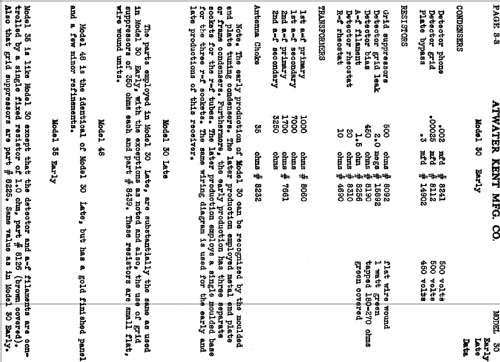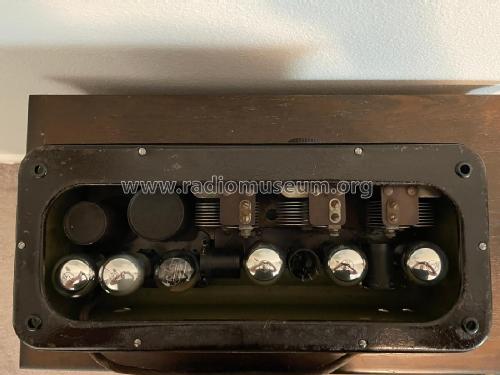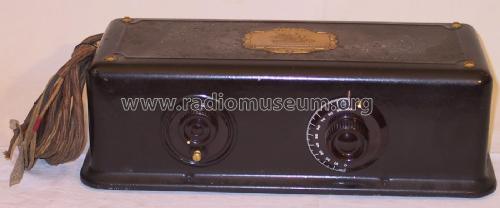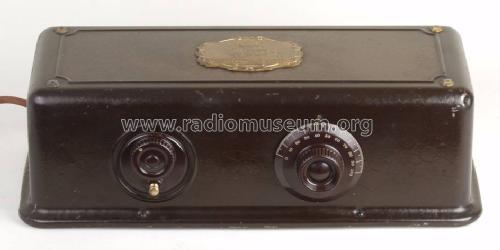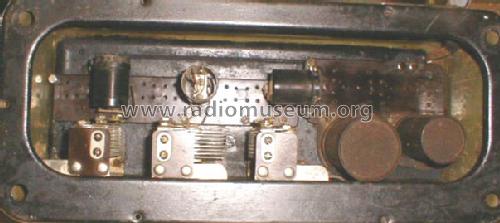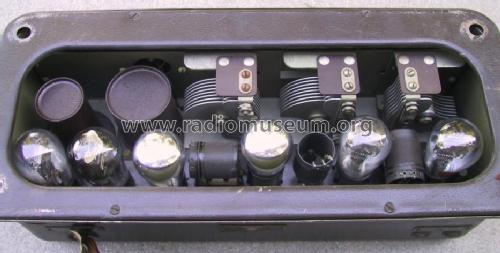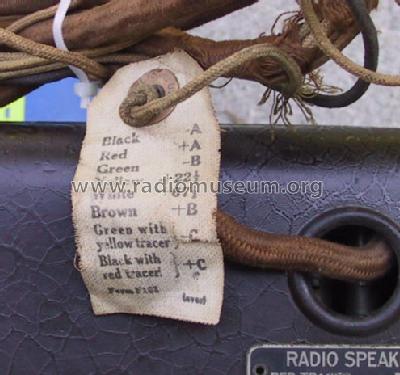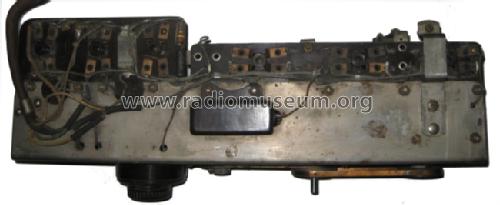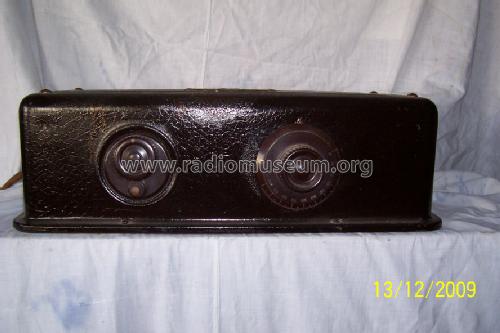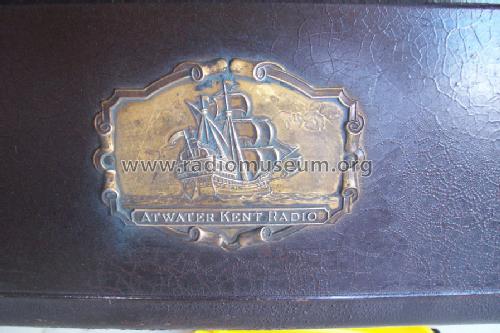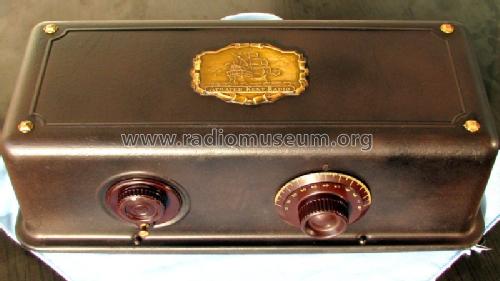8100 Model 35 Table model
Atwater Kent Mfg. Co.; Philadelphia, USA
- Produttore / Marca
- Atwater Kent Mfg. Co.; Philadelphia, USA
- Anno
- 1926
- Categoria
- Radio (o sintonizzatore del dopoguerra WW2)
- Radiomuseum.org ID
- 33247
Clicca sulla miniatura dello schema per richiederlo come documento gratuito.
- Numero di tubi
- 6
- Principio generale
- A circuiti accordati (amplif. diretta) senza reazione
- N. di circuiti accordati
- 3 Circuiti Mod. Amp. (AM)
- Gamme d'onda
- Solo onde medie (OM).
- Tensioni di funzionamento
- Batterie (di accumulatori e/o a secco) / 6 & 90 Volt
- Altoparlante
- - Questo apparecchio richiede altoparlante/i esterno/i.
- Materiali
- Mobile di metallo
- Radiomuseum.org
- Modello: 8100 Model 35 [Table model] - Atwater Kent Mfg. Co.;
- Forma
- Soprammobile con qualsiasi forma (non saputo).
- Dimensioni (LxAxP)
- 17.2 x 5.25 x 7.5 inch / 437 x 133 x 191 mm
- Annotazioni
-
One single rheostat only; One dial (primary tuning control knob) Detector can be CX-301A, CX-300A or CX-112A. 2nd AF can be CX-371A or CX-112A.
Price in Italy, 1928: 2300 ITL.
In Italy it was supplied complete with USA tubes and Atwater-Kent loudspeaker, and batteries for the filament and plate voltages.
- Peso netto
- 5.5 kg / 12 lb 1.8 oz (12.115 lb)
- Prezzo nel primo anno
- 70.00 $
- Fonte esterna dei dati
- Ernst Erb
- Fonte dei dati
- Radio Collector`s Guide 1921-1932
- Riferimenti schemi
- Rider's Perpetual, Volume 1 = 1931/1934 (for 1919-1931)
- Bibliografia
- Collector's Guide to Antique Radios 4. Edition
- Letteratura / Schemi (1)
- A.Atwater Kent, The Man, 2002
- Letteratura / Schemi (2)
- -- Original prospect or advert (La Radio per Tutti, Italy, dossier number 3, 1928)
- Altri modelli
-
In questo link sono elencati 508 modelli, di cui 332 con immagini e 332 con schemi.
Elenco delle radio e altri apparecchi della Atwater Kent Mfg. Co.; Philadelphia, USA
Collezioni
Il modello 8100 fa parte delle collezioni dei seguenti membri.
Discussioni nel forum su questo modello: Atwater Kent Mfg. Co: 8100 Model 35
Argomenti: 1 | Articoli: 4
Hello folks,
I have a two AK 35 in my workshop awaiting restoration. They are in a fairly good condition.
The question I have is related to the paint these ones had.
The thing is that mine, and I think all the ones I have ever seen on internet, have the paint deteriorated and crackled.
Like this:


So the question is... the original paint was all solid and flat? Or did it come with some sort of crackle that with time deteriorated?
OR... is it that being a metal case, with the temprature changes, the case caused forces that eventually broke the layer of bright finish?
A couple more pics of details:


These last two, show that there is still some crackle, but without the top layer being deteriorated..
All in all, any ideas of how I should process the cabinet will be appreciated.
REGARDS!
Javier Albinarrate, 14.Sep.11



